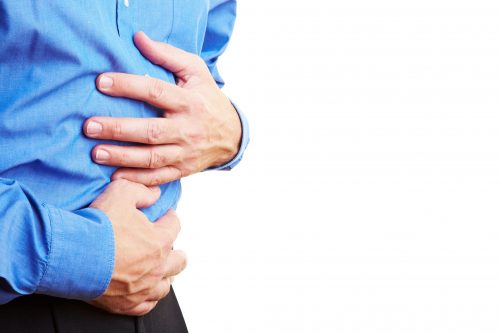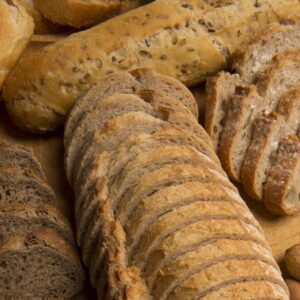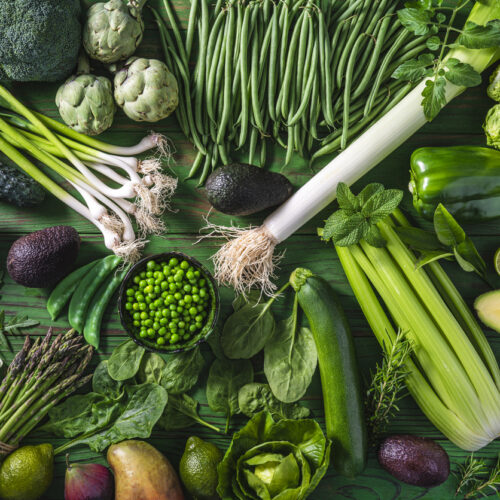
It probably affects more than one in seven Kiwis, yet IBS is often misdiagnosed. Liz Beavis, Debbie Kertesz and Milena Katz explain its causes, symptoms and treatments – and how to prevent it.
Sarah returned from her dream holiday in Vietnam with more than just souvenirs and fond memories. Sarah had a bout of 'gastro' while she was away, but even once the infection had cleared up she still experienced bloating and abdominal pain several times a week, and attacks of diarrhoea on an all-too-regular basis. After doing some tests, her doctor diagnosed her with irritable bowel syndrome (IBS).
And Sarah is not alone; in Britain and the United States it's estimated IBS affects between 14-24% of women and 5-19% of men. The symptoms, which vary from person to person, can include bloating, abdominal pain (which is often relieved by going to the toilet), diarrhoea and constipation.
Symptoms of IBS vary. Some people experience mainly diarrhoea, others are constipated, while a third group has alternating episodes of diarrhoea and constipation. Some people experience ongoing symptoms, while others experience symptoms intermittently.
IBS symptoms include
- Heartburn
- Early feeling of fullness (satiety)
- Nausea
- Bloating
- Absominal pain
- Diarrhoea
- Constipation
- Alternating constipation and diarrhoea
Many people self-diagnose IBS, but as there are other medical conditions that can have similar symptoms it's important to see a doctor to rule these out.
Not IBS? Then it could be…
- Coeliac disease
- Inflammatory bowel disease such as Crohn's disease or ulcerative colitis
- Parasitic infection such as giardia
- Encometriosis
- Diverticulitis
- Thyroid disease
- Ovarian cancer
- Bowel cancer
- Medicinal sife-effects
IBS is known as a functional disorder, which means there is a change in how your gut operates (or functions), without a corresponding change in structure (so everything appears normal with biopsies and X-rays, for example).
Many factors are thought to be involved in the development of IBS, and one person may tick more than one of the boxes for these. Some people have a super-sensitive gut, which means they are aware of normal movement in the gut that most people can't feel. (Such super-sensitive people might also feel something as gentle as a leaf lightly brushing over their skin as uncomfortable or even painful.)
For others, the message between their brain and gut can get a little confused, so their gut may respond inappropriately to normal sensations. Their nervous system might send the message to trigger diarrhoea after eating, for example, or for pain to be felt.
Like Sarah, many people notice their IBS symptoms started following another condition that affected their gut, such as an infection caused by bacteria, a virus or a parasite (such as giardia).
When IBS is diagnosed, treatment falls into three main categories – pharmaceutical, stress management and dietary, and often a combination of these will be required. There is no one approach that will benefit everyone, and it may take trial and error to find what works.
Medicinal help
The types of medications used to treat IBS depend on the symptoms. For people with constipation as the major issue, osmotic laxatives may be used. These work by drawing water into the bowel to soften the stool. They also cause swelling of the large intestine, which helps with the movement of stools through the system.
For people who mainly get diarrhoea, a drug called Imodium is usually taken to treat this symptom of IBS.
Antispasmodics may also be prescribed for treating pain, bloating and flatulence.
Gastroenterologist Jeffrey Engelman says, "These measures are all appropriate as long as other possible conditions have been excluded."
Less stress
While stress doesn't cause IBS, it can certainly make the symptoms worse or cause a relapse. A 2002 study found that about half of IBS sufferers who seek medical care are either depressed or anxious. Two types of antidepressants – the tricyclic kind and selective serotonin reuptake inhibitors – are usually prescribed for IBS sufferers if they are experiencing depression and/or anxiety. As well as having a positive effect on a person's psychological state, these medications are also thought to increase their pain threshold.
It's also important that any approach to managing IBS helps people work out what is causing the stress in their life, and ways of avoiding or at least dealing with it. Meditation, regular exercise, yoga, aromatherapy, hypnotherapy and psychological counselling have all been shown to help cope with stress.
The food factors
Common food triggers
It seems that although particular foods don't cause IBS, they can trigger symptoms. And while one food will be a problem for some IBS sufferers, it won't be for others.
To get on top of this issue, dietitians ask IBS sufferers to keep a food and symptom diary – to write down daily what and how much they eat and drink, and what symptoms occur.
Some common IBS triggers include fatty foods, spicy foods, dairy products, wheat, caffeine, chocolate, alcohol, artificial sweeteners and windy vegetables such as onion and cabbage.
If a food is identified as a problem, the person is asked to avoid eating it for at least a month. And, to avoid confusion, only one food at a time is excluded. So it can take a fair amount of time to work out which foods to avoid, especially as several attempts at nailing a culprit might be necessary.
Finding food intolerances
Some people with IBS may be intolerant to naturally occurring food chemicals such as salicylates, amines and glutamates that give our food flavour. It can be difficult to pinpoint triggers such as these food chemicals because they occur in a range of foods, including fruits and vegetables.
It can also be tricky because a person might be able to manage a small amount of these foods, but then get symptoms when levels accumulate over the day or even over a week.
Sensitive people vary in their reactions to different foods and food chemicals, which means no single diet will suit everyone. To identify food intolerances, it's best to see a dietitian with experience in this area. They will put you through a two-stage test:
- You'll need to follow a strict chemical-free elimination diet, eating only foods on a special list, until symptoms disappear and stay away for at least two weeks.
- Next, you'll be asked to take a series of challenge tests by mouth (which means introducing different foods into your diet) to find out which foods and chemicals in your diet cause reactions. Again, you'll be asked to keep a diary of foods, symptoms and challenges.
Once the problem substances have been pinpointed, your dietitian will advise you on how to change your diet so the symptoms won't recur.
The fructose and fructan thing
Eating foods high in the 'fruit sugar' fructose, such as some fruits, honey, soft drinks and confectionery, can be a problem for people with IBS. Likewise, foods high in fructans (lots of fructose units joined together), such as most wheat-based foods including breads, pasta and breakfast cereals, as well as certain vegetables, such as onions, leeks and asparagus, may trigger IBS symptoms. But, even though several studies have shown limiting foods high in fructose and fructans can reduce IBS symptoms, you don't have to avoid these foods completely. Before you change your diet, it's best to speak to a dietitian who can help you find suitable products, provide you with recipes, and ensure your diet is balanced.
The right fibre
A high-fibre diet and often a fibre supplement as well are generally recommended to people with IBS. According to current research, however, it seems the focus needs to be on the type of fibre – soluble vs insoluble – not just the amount.
Soluble fibre, which helps to soften your stools and is found in fruits, oats, brown rice and legumes, has been shown in studies to improve IBS symptoms. Insoluble fibre, also known as roughage and found in wheat, wheat bran and some vegetables, has been shown in research to actually worsen IBS symptoms.
So while a daily diet that includes plenty of fibre (28g for females and 38g for males) from fruits and vegetables, whole grain cereals, nuts, seeds and legumes can be beneficial for people with IBS, supplements containing wheat bran or other forms of insoluble fibre need to be avoided.
The probiotic plus
The human gut is inhabited by trillions of bacteria – some good, some bad – and it's thought that not enough of the good ones combined with too many bad bacteria may be one of the causes of IBS. There is promising evidence that probiotics, which are good bacteria, consumed either in foods such as yoghurt or in supplements, can reduce the symptoms of pain, bloating and flatulence associated with IBS.
There are many probiotic preparations now on the market, including some that have been especially formulated for the treatment of IBS.
That's a relief…
Thankfully for Sarah it took only a few attempts to identify the foods that were aggravating her symptoms. With the help of a dietitian she removed lactose from her diet, but this only gave minor relief from her symptoms. Next she removed high-fat foods, such as hot chips, fried chicken and hamburgers, and found that was the answer. At last, no more pain and diarrhoea! She now follows a healthy meal plan, eating mainly fresh fruit and vegetables, whole grain cereals, low-fat dairy and lean meat.
Sarah was lucky and found relief from IBS fairly quickly compared to many people. For others it can take months and sometimes years of experimenting with different treatments until they hit the right combination.
As for preventing IBS, keeping your digestive system in good shape is good insurance (see our 10 tips for good digestive health below) But if you do have IBS, there's no cure and relapses are not uncommon. So be persistent, patient, flexible and positive with food and treatments for a solution that works for you.
10 tips for good digestive health
- Understand how your gut works. Its main purpose is to absorb nutrients and clean out solid waste from the body. The path of the digested food through the bowel is not always smooth and it is normal to have some gas, bloating, diarrhoea and constipation at times.
- Eat regularly, preferably six small meals per day.
- Drink plenty of plain water – coffee, tea, soft drink and juice don't count as plain water. The larger your body, the more water you will need.
- Keep active – exercise promotes peristalsis, the movement of food through the bowel, and helps with wind pain and constipation.
- Practice proper food hygiene by refrigerating and heating food adequately. If overseas, drink only treated or boiled water and eat freshly prepared food that is still hot.
- Remember fibre! Everyone has a different tolerance for fibre: some people need more for good bowel function, others need less.
- Don't self-diagnose – IBS is different for everyone so get expert advice, and rule out other possible illnesses such as coeliac disease, bowel cancer and diverticulitis.
- Keep up your intake of good bacteria by taking probiotics and/or eating yoghurt that contains live cultures – this is especially important when taking antibiotics.
- Watch your intake of carbonated drinks and any tendency to swallow air when talking or eating – these two things can significantly contribute to bowel wind.
- Dietary changes will depend on the main symptoms of IBS, which vary from person to person. A diet management plan by a health professional can be the key to controlling your symptoms.
FAQs about IBS
What exactly is IBS?
IBS is a disorder of the digestive tract with a range of symptoms and a variety of causes, some of which may be related to diet.
Who gets IBS and why?
IBS can affect anyone, from children to the elderly. It is twice as common in women as in men.
How do I know if I have it?
There are no specific diagnostic tests for IBS, however it is important to see your doctor for a diagnosis so any other possible causes for your symptoms can be excluded (table above).
What foods does someone with IBS need to eat?
IBS sufferers need to consume a healthy balanced diet that includes fibre-rich foods.
What foods does someone with IBS need to avoid?
Some people may find individual foods or food groups can aggravate their symptoms. Examples are fatty or spicy foods, carbonated soft drinks and wind-causing vegetables.
What can aggravate IBS?
Stress can worsen IBS symptoms. Although having IBS can be stressful, worrying about it can make things worse. Your gut and brain are strongly linked by nerves, so your gut will respond to stress.
Are there other treatments for IBS?
Hypnotherapy, relaxation techniques, probiotics and medications can all be used to relieve symptoms. Work with your GP to find what's effective for you.
Can IBS be cured?
IBS is a syndrome, not a disease, so it cannot be cured. However, some people are able to improve their symptoms once they know their individual triggers (certain foods, stress, and so on).
Can IBS be inherited?
There does seem to be a tendency within families to develop IBS, although the symptoms and triggers may be different for each family member.
What can I do to avoid developing IBS?
Eat a healthy, balanced diet and follow our tips for good digestion (see table above).
www.healthyfood.com










